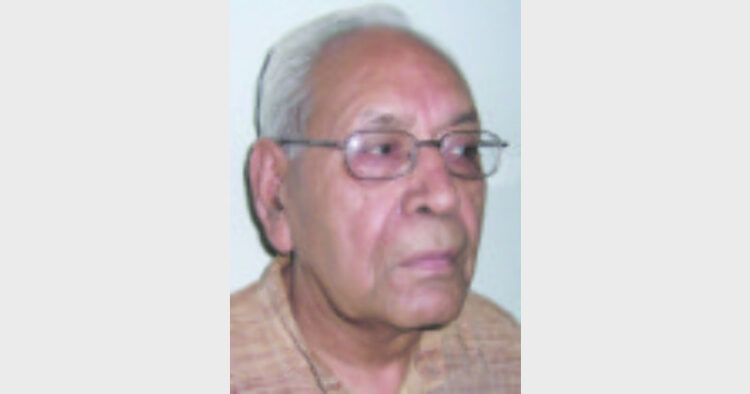REPORT-4
Dina Nath Batra
Implementation of Compulsory Primary Education Act is a national obligation. Simple enactment of the Act is not adequate. To remove the blemish of illiteracy in India, it is necessary that we all realise our responsibility and contribute our bit for the success of this crucial programme.
At Political Level :- Members of Lok Sabha, Rajya Sabha, State Assemblies and all such other organisations should assume the following responsibilities:-
a) All Members of Parliament should set aside a sum of Rs 10 crore for Compulsory Primary Education out of their discretionary fund allotted for social welfare.
b) Select one Assembly constituency and open single teacher schools in each ward area of that constituency. Subsequently, cover the other constituencies in the Parliamentary constituency.
c) Appoint one salaried supervisor for 50 schools. Provide transport to him so that he can conveniently visit schools and guide the teachers.
d) There should be one Education Officer for each education complex for in-service education of teachers and improvement of educational standard.
1. Similar steps should be taken at Assembly constituency level, Municipal ward level and Panchayat level. All organisations should formulate their programme, allocate budget and work accordingly.
2. Accounts of all such programmes should be audited by qualified accountants and Audit Reports be sent to the concerned authorities.
3. Functionaries of the Education Department should coordinate with the programme and render necessary help.
Role of Educational Organisations:- There are many Teacher Training Schools and Colleges in the country. All teacher trainees should render six months compulsory voluntary service in this programme before they are awarded training certificates and degrees. The work of the trainees should be supervised by lecturers and professors. Performance report of trainees should be prepared. Satisfactory performance report should be a pre-requisite for the award of training Certificate/Degree.
Out of 365 days of the year, there are 210 working days while 155 days are holidays. Services of students of class IX and XI should be utilised for the implementation of the programme. Their time will be gainfully spent. It will also result in their social and mental development.
The IIT’s and other professional institutions should adopt ten villages around their location and help in the implementation of the programme in those villages. Commendation Certificate for good work should be awarded to the deserving students.
Role of Non-Governmental Organisations:- There are many non-governmental organisations working in different fields of activity. Many of them get financial assistance from the government. They may be asked to adopt some villages and implement the programme in those villages. These organisations can also help the children working in homes, markets and elsewhere.
Child Welfare Departments:- A common programme need to be formulated for all Child Welfare Departments of the government. Those children who are employed and supplement the family income may be awarded financial assistance and join the literacy programme.
Cultural and Religious Organisations:- There are a number of cultural and religious organisations which have huge resources and a large following. They can inspire their followers to join the movement and help in the implementation of the programme. They can open new schools in remote areas and provide financial aid to other schools. They can persuade children to join schools.
Industrial Houses:- Industrial houses can get inspiration from Prem ji who has decided to open one senior secondary school in each district where education shall be imparted through the mother tongue. Such schools will maintain high standard. If other industrial houses follow this example, it can change the whole educational scene of the country. The government should give suitable tax relief for such effort.
Retired Persons:- There are many retired persons who have lot of time, high competence and adequate energy. They can render very useful service. They may resolve to help 50 students every year.
This is not simply a government programme. Every citizen should realise that this is a national movement and needs no compulsion or pressure. Every citizen should contribute in this sacred cause.
(The writer is national president of Shiksha Sanskriti Utthan Nyas and can be contacted at [email protected])














Comments